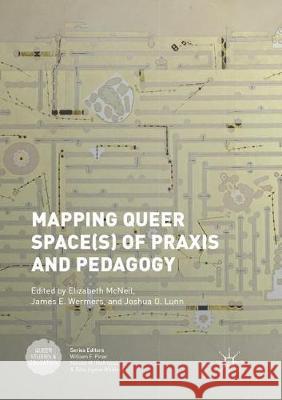Mapping Queer Space(s) of Praxis and Pedagogy » książka
topmenu
Mapping Queer Space(s) of Praxis and Pedagogy
ISBN-13: 9783319878386 / Angielski / Miękka / 2018 / 334 str.
Kategorie:
Kategorie BISAC:
Wydawca:
Palgrave MacMillan
Seria wydawnicza:
Język:
Angielski
ISBN-13:
9783319878386
Rok wydania:
2018
Wydanie:
Softcover Repri
Ilość stron:
334
Waga:
0.41 kg
Wymiary:
21.08 x 19.56 x 1.52
Oprawa:
Miękka
Wolumenów:
01











